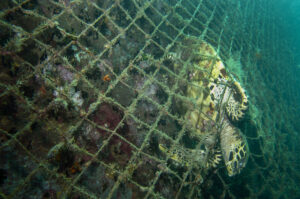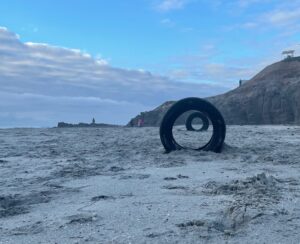Oceana UK battles British government oil and gas plans
In court, Oceana will argue that unlawful licences granted by the previous UK government ignoring advice from its own nature advisors and fail to account for the full scale of the emissions and environmental impact through oil spills directly associated.
Oceana UK is taking the UK government to High Court in a challenge to the 31 licences for oil and gas exploration which altogether covers an area half the size of Wales with the potential to inflict “deep and lasting harm’ on both marine wildlife and climate stability.
The 31 licences facing the challenge are just a part of the 82 licences issued in the latest licensing round which – in total – are expected to mean the extraction of some 600 million barrels of oil equivalent.
In court this week, Oceana will argue that the licences – granted by the previous Conservative government – were done so unlawfully, ignoring expert advice from its own nature advisors while failing to take account for the full scale of the emissions related to burning the extracted oil and gas and the severe impact this will have on marine life.
Rather than dropping its legal defence and allowing the courts to decide – as it did so in the recent Rosebank oilfield case – the now Labour government is defending the decisions made by its predecessors. This despite the fact that more than two-thirds of the licenses granted are inside marine protected areas, home to wildlife from porpoises to puffins.
Oil spills and their impact on this wildlife were not considered in the assessments given for these licences.
In supporting the decision, the government has been accused by Oceana UK of ‘overruling the severe harm to ocean wildlife’ that would be caused by these licences, while ‘aligning itself with profit-hungry oil companies, rather than a thriving future for UK seas and communities.’
Failing to assess the impact of oil spills on UK protected marine space is a ‘serious omission’ says Oceana. Last year, the UK suffered more than two oil or chemical spills every day, resulting in over 82,000kg of oil spilling into the sea.
To highlight the extent of this crisis alone, earlier this year, Oceana UK launched a live and interactive map of the UK, plotting the oil and chemical spills occurring in UK waters as they happen and as government databases are updated.

On top of the direct damage to rare marine habitats, such as deep sea sponges and cold water corals; oil and gas exploration will mean seismic airgun surveys that emit “an ear-splitting noise” that can affect marine life, from dolphins to commercial fish species.
The impacts here include disruption of mating and feeding and – argues Oceana – can even lead to strandings and death.
“Today in court we will see government lawyers sit down on the side of Big Oil, and in opposition to those who represent the ocean, nature, and our collective future,” said Naomi Tilley, campaign lead for Oceana UK.
“Labour has made a welcome commitment to ending new oil and gas licences and to building a future powered by clean, reliable sources of energy. They now need to hold true to that and choose the right side of history.
“The steady drip-feed of pollution from oil and gas developments has well-documented and severe impacts on marine wildlife ranging from cancers to stillbirths, and across species from porpoises to cod. This is on top of pressures of the climate crisis. We need to prioritise thriving seas and flourishing communities over short-term profits and greed.”
The oil and gas licences were granted in May 2024 and are the final batch granted in the 33rd licensing round. They extend over 9,413-square-kilometres of UK waters – approximately half the size of Wales.
The need for environmental impact assessments to account for emissions caused by burning the fossil fuels extracted is now a precedent in law, established by a ruling – known as the Finch ruling – last year. Numerous judgements have since been decided on this basis, including the recent quashings of the Rosebank oilfield approval.
Oceana will argue that by deepening the climate crisis, these licences will lead to severe impacts on protected marine habitats, which have not been taken into account. Global heating has already resulted in unprecedented marine heatwaves in UK waters, and is accompanied by rising acidity and declining oxygen.
“These oil and gas licences could have serious and potentially irreversible impacts on sensitive marine habitats and species,” said Carol Day, senior environmental solicitor at Leigh Day.
“The point of the assessment process is to ensure these possible dangers are understood and factored into decision-making. Our client feels that this assessment process failed to acknowledge important expert advice on these dangers, and they welcome the opportunity to explain to the court why they believe the decision to go ahead with granting these licenses was deeply flawed.”


"*" indicates required fields






